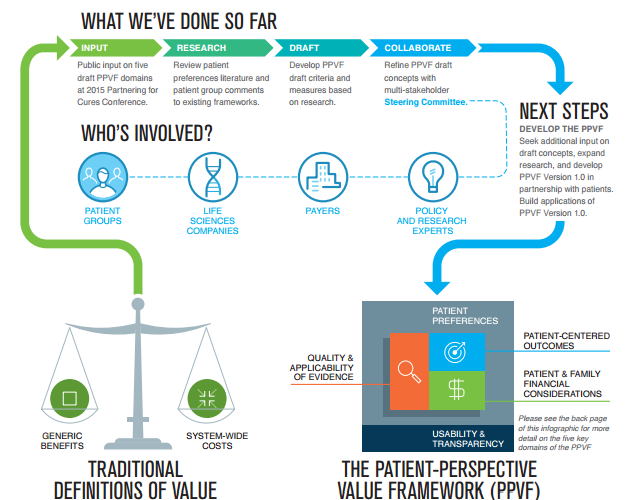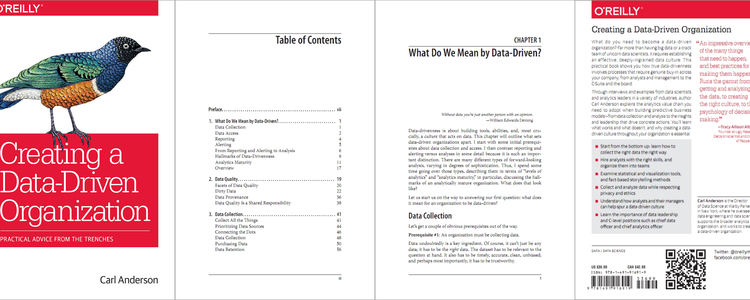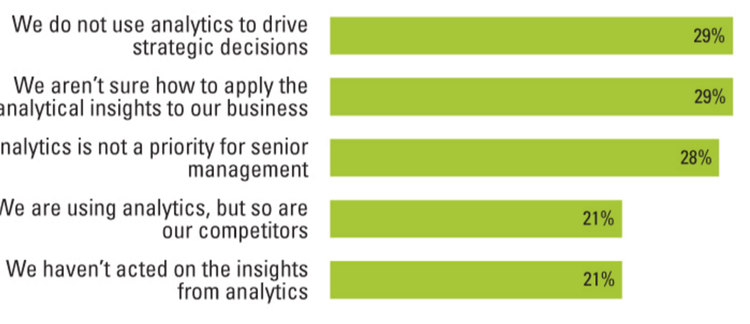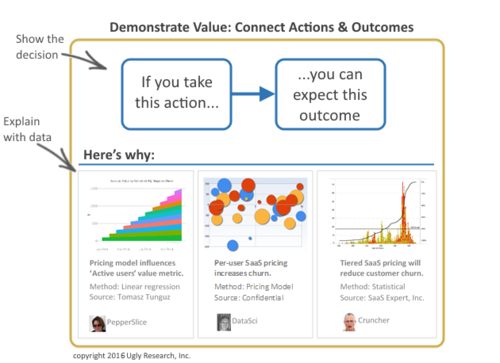Smart decision-making is more complicated than becoming ‘data-driven’, whatever that means exactly. We know people can make better decisions if they consider relevant evidence, and that process is getting easier. But too often tech enthusiasts dismiss people’s decisions as based on gut feel, as if data will save us from ourselves. Let’s put an end to […]
1. CircleUp uses algorithm to evaluate consumer startups. Recently we wrote about #fintech startups who are challenging traditional consumer lending models. CircleUp is doing something similar to connect investors with non-tech consumer startups (food, cosmetics, recreation). It’s not yet a robo adviser for automated investing, but they do use machine learning to remove drudgery from […]
1. Evidence standards → Knowing what works → Pay for success Susan Urahn says we’ve reached a Tipping Point on Evidence-Based Policymaking. She explains in @Governing that 24 US governments have directed $152M to programs with an estimated $521M ROI: “an innovative and rigorous approach to policymaking: Create an inventory of currently funded programs; review […]
1. Formalized decision process → Conflict about criteria It’s usually a good idea to establish a methodology for making repeatable, complex decisions. But inevitably you’ll have to allow wiggle room for the unquantifiable or the unexpected; leaving this gray area exposes you to criticism that it’s not a rigorous methodology after all. Other sources of […]
1. SPOTLIGHT: MCDA, a decision process for everyone. ‘Multiple criteria decision analysis’ is a crummy name for a great concept (aren’t all big decisions analyzed using multiple criteria?). MCDA means assessing alternatives while simultaneously considering several objectives. It’s a useful way to look at difficult choices in healthcare, oil production, or real estate. But oftentimes, […]
1. Great stuff on data-driven decision making in a new O’Reilly book by Carl Anderson (@LeapingLlamas), Creating the Data-Driven Organization. Very impressive overview of the many things that need to happen, and best practices for making them happen. Runs the gamut from getting & analyzing the data, to creating the right culture, to the psychology […]
1. Deep knowledge → Wagering strategy → Jeopardy! win Some Jeopardy! contestants struggle with the strategic elements of the show. Rescuing us is Keith Williams (@TheFinalWager), with the definitive primer on Jeopardy! strategy, applying game theory to every episode and introducing “the fascinating world of determining the optimal approach to almost anything”. 2. Gun controls […]
1. Crowdsourcing → Machine learning → Micro, macro policy evidence Premise uses a clever combination of machine learning and street-level human intelligence; their economic data helps organizations measure the impact of policy decisions at a micro and macro level. @premisedata recently closed a $50M US funding round. 2. Data blindness → Unfocused analytics → Poor […]
1. Visualizing networks. @Polinode builds innovative tools for network analysis. One nifty feature allows creation of column charts using a set of nodes. A recent post explains how to use calculated network metrics such as centrality or betweenness. 2. Analytics are disconnected from strategic decisions. An extensive study suggests analytics sponsors are in the trough […]
1. SPOTLIGHT: Warby Parker data scientist on creating data-driven organizations. What does it take to become a data-driven organization? “Far more than having big data or a crack team of unicorn data scientists, it requires establishing an effective, deeply ingrained data culture,” says Carl Anderson. In his recent O’Reilly book Creating a Data-Driven Organization, he […]






